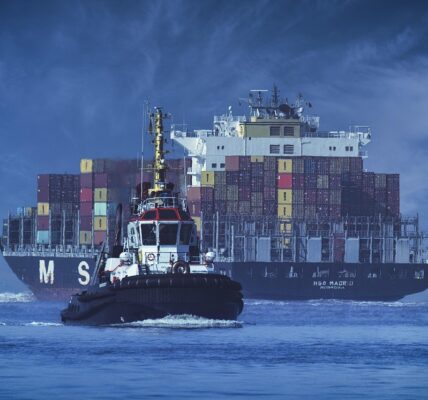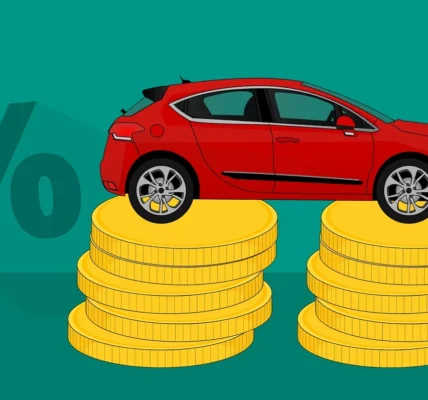Introduction
The aviation industry, while thrilling and dynamic, is exposed to unique risks. Whether you operate a commercial airline, manage a charter business, own a fleet of drones, or run an airport, your assets, passengers, and operations demand robust protection. That’s where aviation insurance services step in—a specialized sector of insurance designed to address the complex and high-stakes world of aviation.
In this comprehensive guide, we’ll explore what aviation insurance services entail, why they’re crucial, the types of coverage available, how premiums are calculated, and tips for choosing the right insurance provider.
What Are Aviation Insurance Services?
Aviation insurance services refer to insurance products and risk management solutions specifically crafted for the aviation sector. Unlike standard property or auto insurance, aviation policies cover specialized risks unique to air operations.
These services typically include:
-
Hull insurance (covering aircraft damage)
-
Liability insurance (for passengers, third parties, and cargo)
-
Airport and hangar keepers insurance
-
Drone insurance
-
Product liability for aviation manufacturers
-
War and terrorism risk coverage
Aviation insurance services cater to a broad range of clients, including:
-
Commercial airlines
-
Charter operators
-
Private aircraft owners
-
Airports and ground handlers
-
Aviation maintenance and repair organizations
-
Aircraft leasing companies
-
Drone operators
Given the significant costs involved in aviation operations and the potential legal liabilities, insurance is not just advisable—it’s often legally mandatory.
Types of Aviation Insurance Services
Let’s break down the primary categories under aviation insurance services.
1. Hull Insurance
Hull insurance covers physical damage to the aircraft itself. This includes:
-
Accidents during takeoff or landing
-
Ground damage from collisions or weather
-
Fire or theft
Policies may be “in motion” (covering flying time) or “not in motion” (protecting aircraft when parked or stored).
2. Passenger Liability Insurance
Passenger liability protects aircraft owners and operators against claims from passengers injured or killed in an accident. Many countries mandate a minimum level of passenger liability coverage.
3. Public Liability Insurance
Also known as third-party liability, this coverage applies to damage your aircraft causes to property, vehicles, or people outside the aircraft. It does not cover passengers on the aircraft.
4. Ground Risk Hull Insurance
This subset protects aircraft against damage while not in motion, such as during refueling, maintenance, or storage.
5. Aviation Product Liability Insurance
Manufacturers and suppliers of aircraft parts or systems can face costly lawsuits if defects cause accidents. Aviation product liability insurance covers legal defense costs and damages.
6. Hangarkeepers Insurance
For businesses operating hangars, hangarkeepers insurance protects customer aircraft while stored or being serviced.
7. Drone Insurance
The rise of commercial drones has led to specialized aviation insurance services for unmanned aerial vehicles (UAVs). Drone insurance can include:
-
Physical damage (hull)
-
Third-party liability
-
Privacy violations
-
Data breach or cyber liability
8. War and Terrorism Insurance
Standard aviation policies often exclude war, terrorism, and hijacking risks. Separate war-risk coverage fills this gap.
Why Aviation Insurance Services Are Essential
Aviation is one of the world’s most regulated and safety-focused industries. However, no matter how stringent protocols are, accidents can—and sometimes do—happen. The financial consequences can be staggering.
Consider the potential costs:
-
Aircraft replacement or repair
-
Passenger medical claims
-
Third-party property damage
-
Environmental clean-up costs
-
Legal defense and settlements
Even a minor incident can generate significant expenses. Aviation insurance services shield operators and businesses from catastrophic financial losses.
How Are Aviation Insurance Premiums Calculated?
Several factors influence the cost of aviation insurance services:
-
Type of aircraft: Larger, more expensive aircraft usually mean higher premiums.
-
Usage: Commercial, cargo, training, or personal use each carry different risk levels.
-
Pilot experience: Insurance companies assess pilots’ hours flown, licenses, and safety records.
-
Flight routes: Flying over conflict zones increases risk and premiums.
-
Claim history: A history of accidents or claims can raise rates significantly.
-
Hull value: Higher insured values directly increase premiums.
Insurers carefully underwrite aviation risks, considering both operational factors and the broader geopolitical environment.
Choosing the Right Aviation Insurance Services Provider
When selecting an aviation insurance provider, consider:
✅ Specialization: Work with insurers or brokers experienced in aviation. General insurers might not grasp aviation’s unique exposures.
✅ Reputation: Check client reviews and industry rankings.
✅ Claims handling: Fast and fair claims processing is critical in aviation.
✅ Customization: No two aviation businesses are identical. Your insurance provider should tailor coverage to your specific operations.
✅ Financial strength: Aviation claims can run into millions. Ensure your insurer has the financial capacity to pay.
Benefits of Aviation Insurance Services
Here’s why aviation insurance services are indispensable:
-
Legal compliance: Many regions legally mandate minimum liability coverage.
-
Financial protection: Covers massive potential losses.
-
Peace of mind: Focus on your operations without fear of financial ruin.
-
Business continuity: Protects cash flow and assets in the event of an accident.
-
Enhanced reputation: Demonstrates responsible management and regulatory compliance.
FAQs About Aviation Insurance Services
Q1: Is aviation insurance mandatory?
Yes, in most countries, at least some form of aviation liability insurance is legally required, particularly for commercial operators carrying passengers or cargo.
Q2: Can private pilots purchase aviation insurance?
Absolutely. Private pilots and aircraft owners can—and should—purchase hull and liability coverage to protect themselves and their aircraft.
Q3: Does aviation insurance cover war risks?
Not automatically. War, hijacking, and terrorism risks are typically excluded from standard policies. Separate war-risk coverage is available.
Q4: Are drones covered under aviation insurance services?
Yes. The drone industry has driven significant growth in aviation insurance services. Many insurers now offer tailored policies for UAV operators.
Q5: How can I lower my aviation insurance premium?
-
Maintain a clean safety record.
-
Invest in pilot training and advanced safety systems.
-
Work with an experienced aviation insurance broker.
-
Avoid high-risk routes or operations where possible.
Summary
Aviation insurance services are a vital safety net in the aviation industry. Whether you’re a major airline, a drone operator, or a private pilot, aviation carries significant financial risks. Tailored insurance policies help protect your business, your passengers, and your peace of mind.
From hull damage to passenger liability, aviation insurance services provide comprehensive protection against the unique risks of operating in the skies. Choosing an experienced and reputable insurer is crucial to ensure fast claims handling and sufficient coverage limits.
Conclusion
Aviation, while innovative and transformative, operates in a realm where safety and financial stability are non-negotiable. The stakes are high, and the risks can be enormous. That’s why aviation insurance services are not just an option—they are a necessity.
Investing in proper insurance coverage means safeguarding your business, your assets, and your future. As aviation technology evolves, so do the risks and the insurance solutions designed to mitigate them. Work closely with experienced aviation insurance providers to ensure your coverage is as elevated and dependable as the aircraft you fly.




